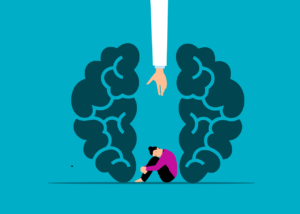Intro
In today's fast-paced world, finding tranquility can seem like an elusive quest. Yet, mastering how to calm your mind and relax is essential for both our physical and mental health. With stressors bombarding us from every angle, knowing effective strategies to quiet the mind can be a lifesaver. Here, we explore 10 powerful techniques that can help you find that much-needed peace.
1. Embrace Mindfulness Meditation
Mindfulness meditation is a transformative technique that encourages you to stay anchored in the present, allowing you to witness your thoughts and emotions without engaging in judgment.
This form of meditation aids in minimizing stress, alleviating anxiety, and diminishing negative feelings by fostering an attitude of acceptance and presence. Starting with short, manageable sessions and gradually extending them can make this practice a more integral part of your routine.
For those new to this method, plenty of apps and digital resources offer guided sessions tailored to beginners. This practice not only soothes the mind but also equips you with the tools to handle daily stressors more effectively. Engaging in mindfulness meditation can open the door to a more peaceful and centered state of being, enhancing overall well-being.
2. Deep Breathing Techniques
Deep breathing serves as a powerful tool to swiftly dial down stress levels and instill a sense of tranquility. One notable method is the 4-7-8 technique, which involves inhaling deeply for a count of four, holding that breath for seven seconds, and then slowly exhaling for eight seconds.
This process not only aids in calming the mind but also engages the parasympathetic nervous system, fostering relaxation throughout the body. By practicing deep breathing, you can quickly achieve a more peaceful state of mind, making it easier to tackle the day's challenges with a centered and calm approach. Incorporating these breathing exercises into your daily routine can offer immediate stress relief and contribute to long-term well-being.
3. Engage in Regular Physical Exercise
Engaging in physical activity is a potent way to alleviate stress and enhance mental clarity. Whether it's a brisk walk in the morning, a yoga session, or a dance class, moving your body increases the production of endorphins, known as the brain's feel-good neurotransmitters.
This natural mood lifter can help ease anxiety and depression, making exercise a critical component of your mental wellness toolkit. By setting a goal for regular physical activity, such as 30 minutes on most days, you not only improve your physical health but also provide a robust foundation for mental resilience.
Additionally, the rhythm and routine of exercise can bring a sense of normalcy and control, further contributing to a calm and focused mind. Incorporating varied forms of exercise can keep the routine enjoyable and something to look forward to, fostering both physical and mental well-being.
4. Create a Relaxing Environment
Your surroundings can significantly influence your mental state. To foster a sense of peace, tailor your space to be an oasis of calm. Start by decluttering, as a tidy space promotes a more serene mind. Incorporating elements of nature, like houseplants, can purify the air and add a soothing touch.
Soft, ambient lighting can create a gentle atmosphere, while calming background music or the sound of a water feature can further enhance the tranquil vibe. Personal touches that resonate with your sense of tranquility are key—consider comfortable seating, soft blankets, or artwork that evokes peace.
These changes can transform your living area into a haven that supports relaxation and mental clarity, making it easier to unwind and find peace amidst the chaos of everyday life.
5. Limit Screen Time Before Bed
In our digitally dominated world, it's crucial to set boundaries for electronic device usage, especially before sleep. The blue light emitted from screens can interfere with the body's natural sleep rhythms, leading to restlessness and difficulty in falling asleep.
By implementing a digital curfew, you allow your mind the opportunity to transition into a state conducive to rest. Instead of engaging with electronic devices, opt for calming activities such as reading a physical book, meditating, or practicing gentle stretching exercises. These activities not only help in minimizing exposure to stimulating blue light but also contribute to a routine that supports mental calmness and readiness for sleep. Establishing this habit can significantly improve the quality of your rest, leaving you better prepared to face the challenges of a new day.
6. Practice Gratitude
Cultivating a mindset of gratitude can dramatically transform your outlook and soothe your mind. Keeping a gratitude journal where you jot down things you're grateful for each day can act as a powerful tool in combating stress. This simple yet profound practice encourages a shift towards noticing the abundance in your life, rather than what's lacking.
Over time, this shift can lead to significant improvements in your overall mood and emotional well-being. Whether it's appreciation for a loved one, the beauty of a sunset, or a personal achievement, acknowledging these moments can pave the way for a more serene and content state of mind. Engaging in gratitude not only elevates your spirit but also strengthens resilience against life's inevitable stresses.
7. Connect with Nature
Immersing yourself in the natural environment offers a profound tranquility that's hard to replicate. The simple act of being outdoors, surrounded by greenery and the elements, naturally lowers stress hormones, boosts mood, and sharpens focus.
Make a conscious effort to integrate outdoor moments into your routine—whether that means having your morning coffee in your backyard, taking your workout to a local park, or organizing weekend excursions to more secluded natural settings. Each interaction with nature serves as a gentle reminder of life’s beauty and its rhythms, providing a refreshing escape from the digital and concrete world.
Engaging with the outdoors doesn’t just benefit your mental health; it nurtures a deep appreciation for the planet, encouraging sustainable living practices. So, lace up your shoes, step outside, and let the earth’s inherent tranquility work its magic on your mind.
8. Try Aromatherapy
Aromatherapy taps into the potent connection between scent and well-being, leveraging the therapeutic properties of essential oils to usher in relaxation and tranquility.
By incorporating fragrances like lavender, which is renowned for its stress-relieving qualities, or chamomile, known for its soothing effects, you can create a serene ambiance conducive to mental peace. Whether diffusing oils into the air, adding them to a warm bath for a luxurious soak, or applying them topically with carrier oils to pulse points, aromatherapy offers a versatile approach to calming the mind.
Exploring various scents allows you to customize your relaxation experience, finding those that resonate most deeply with your personal tranquility goals.
9. Establish a Regular Sleep Schedule
A regular sleep schedule is vital for mental serenity and emotional stability. Disruptions in sleep patterns can amplify stress and negatively impact mood, making it harder to maintain calmness. Committing to a consistent bedtime and wake-up time helps regulate your body's internal clock, leading to improved sleep quality. Integrate calming pre-sleep rituals such as a warm bath or a quiet reading session to ease the transition into rest.
Avoiding stimulants like caffeine in the late afternoon and evening can also contribute to a more restful night. By prioritizing sleep and establishing routines that support it, you provide a strong foundation for a calm and collected mind, enhancing your ability to face daily stressors with resilience and poise.
10. Seek Professional Help When Needed
Navigating the waters of mental tranquility can sometimes require guidance beyond personal efforts. In instances where feelings of overwhelm persist, turning to professional support can be a crucial step. Therapists and mental health counselors are equipped with the expertise to provide effective strategies tailored to your unique needs, fostering a healthier mindset. They can help unravel the complexities of your thoughts and emotions, offering a structured path towards managing stress and anxiety more effectively.
Reaching out for professional assistance is a proactive measure in maintaining your mental well-being and ensuring that your journey towards a calmer mind is supported with compassion and understanding. Engaging with a professional doesn’t just aid in overcoming current challenges but also empowers you with skills for future resilience.






